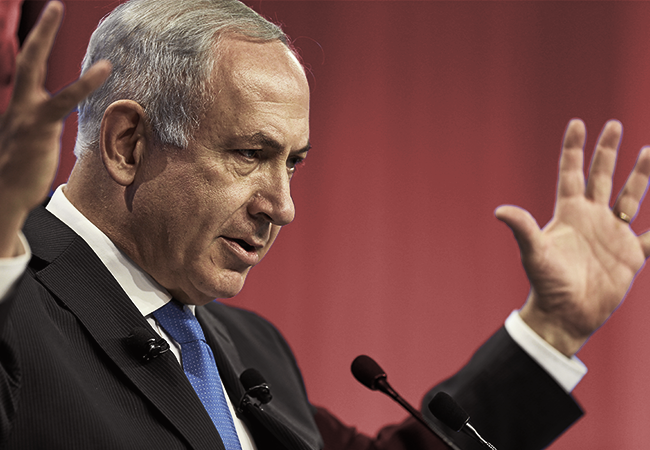The Coalition Government's treatment of the poor is reminiscent of past, outdated attitudes, writes Bilal Cleland.
The oppression of the poor an established tradition
IN THE LATE 1700s and the early 1800s, Britain was concerned at the high numbers of people requiring poverty relief.
To the ruling class of the day, poverty was obviously due to the extravagance, drunkenness and stupidity of the lower classes.
In fact, the root causes of poverty were the dislocation of rural populations with the agricultural revolution and the growth of industrial towns, combined with the demobilisation of troops at the end of the Napoleonic Wars and wages at less than the poverty level.
The Poor Law Amendment Act of 1834 established workhouses in every parish in an attempt to make poor relief as unattractive as possible.
In accordance with the wisdom of the rulers of that time, the position of the lowliest independent worker would be better than that of a pauper in a workhouse. The lowest wage was better than poor relief in the workhouse.
Married people were separated and children were rarely allowed to see their parents.
These oppressive poor laws stimulated the rise of Chartism and led to the demand for political representation from the working people.
Britain was threatened with a major uprising.
Unemployment relief in Australia in 2019
Prime Minister Scott Morrison intends a national roll-out of the cashless debit card as part of a self-described "compassionate conservative" welfare agenda.
Only 20 per cent of the benefit will be accessible as cash with 80 per cent quarantined, preventing expenditure on alcohol, gambling or drugs.
His assumptions about those in need of welfare assistance reflect those of nearly 200 years ago in Britain.
Mr Morrison has said:
Welfare is not an end in itself. It's a means to help people and support people be stronger, not weaker. It's not unreasonable for the taxpayer to say: 'Well, I'm happy to give you the support. But I'm not going to have you spend it on drugs or gambling'.
The shake-up will also involve forcibly taking rent and utility bills out of people's social security or family tax benefit payments to ensure they're up to date and don't become homeless.
Just as national poverty could not excuse the oppressive workhouses of 19th Century Britain, national poverty cannot be used as the excuse for this new version through the cashless debit card.
As Alan Austin has pointed out for IA:
Exports are at all-time highs. The trade balance is in record surplus. The current account has returned to surplus for the first time since 1975….Company profits are booming. The percentage increases for the last three years, as reported by the ABS, were 22.2 per cent, 10 per cent and 10.9 per cent.
But there is a shortage of jobs.
As Wollongong Homeless Hub manager Mandy Booker said:
"I think if you are going to expect people to get into employment, you need to actually make sure there is enough employment for everybody that is actually on welfare, which there is not."
It is ideology rather than economics which is shaping this punitive cashless debit card policy.
An attitude which has spread via Pentecostalism and Evangelicalism, known as the Prosperity Gospel (PG), is described by the Religious Literacy Project at Harvard Divinity School as emphasising 'believers’ abilities to transcend poverty and/or illness through devotion and positive confession'.
It also outlines that:
Members of the socioeconomic elite may also be drawn to PG messages, which affirm the religious and spiritual legitimacy of wealth accumulation and reinforce a worldview in which financial success is an indicator of moral soundness.
A brutal expression of the conservative evangelical position on poverty was famously expressed by David French in the National Review:
It is simply a fact that our social problems are increasingly connected to the depravity of the poor. If an American works hard, completes their education, gets married, and stays married, then they will rarely — very rarely — be poor ... As we have poured money into welfare, we’ve done nothing to address the behaviours that lead to poverty while doing all we can to make that poverty more comfortable and sustainable.
Kareem Abdul-Jabbar, the American Muslim NBA champion, a U.S. global cultural ambassador appointed in 2012 and awarded the Presidential Medal of Freedom in 2016, has roundly condemned this arrogant approach.
He has said:
It’s crazy logic that stomps spirituality into pulp like a mugger pummeling a victim in a back alley. Like something Cersei Lannister would propose on Game of Thrones. Yet, that is the line — that God wants believers to be wealthy and that giving donations could improve your wealth — that some proponents of the so-called prosperity gospel have been selling.
And like the snake-oil salesmen from whom they are descended, their product has a greasy stench to it that cures nothing but the salesman’s own greed.
There seems to be another level, which meshes quite well with the assumptions about the poor and the blessed significance of wealth.
There is money to be made from the cashless debit card. A private company, Indue, will handle the cards. The company is already receiving up to $10,000 for each participant in the cashless debit card "experiment", while welfare recipients only get around $14,000.
Then information from two years ago warned what would be the cost to the taxpayer of a major roll-out.
If every person dependent on welfare were given the cashless debit card, the administration costs connected to the card would be approximately $3.2 billion more than the previous system. Indue or other contracted companies will be the beneficiaries of this blowout.
Just who would benefit from such a major shake-up of our welfare system?
Not the welfare recipients.
Bilal Cleland is a retired secondary teacher and was Secretary of the Islamic Council of Victoria, Chairman of the Muslim Welfare Board Victoria and Secretary of the Australian Federation of Islamic Councils.
 This work is licensed under a Creative Commons Attribution-NonCommercial-NoDerivs 3.0 Australia License
This work is licensed under a Creative Commons Attribution-NonCommercial-NoDerivs 3.0 Australia License
Support independent journalism Subscribe to IA.












